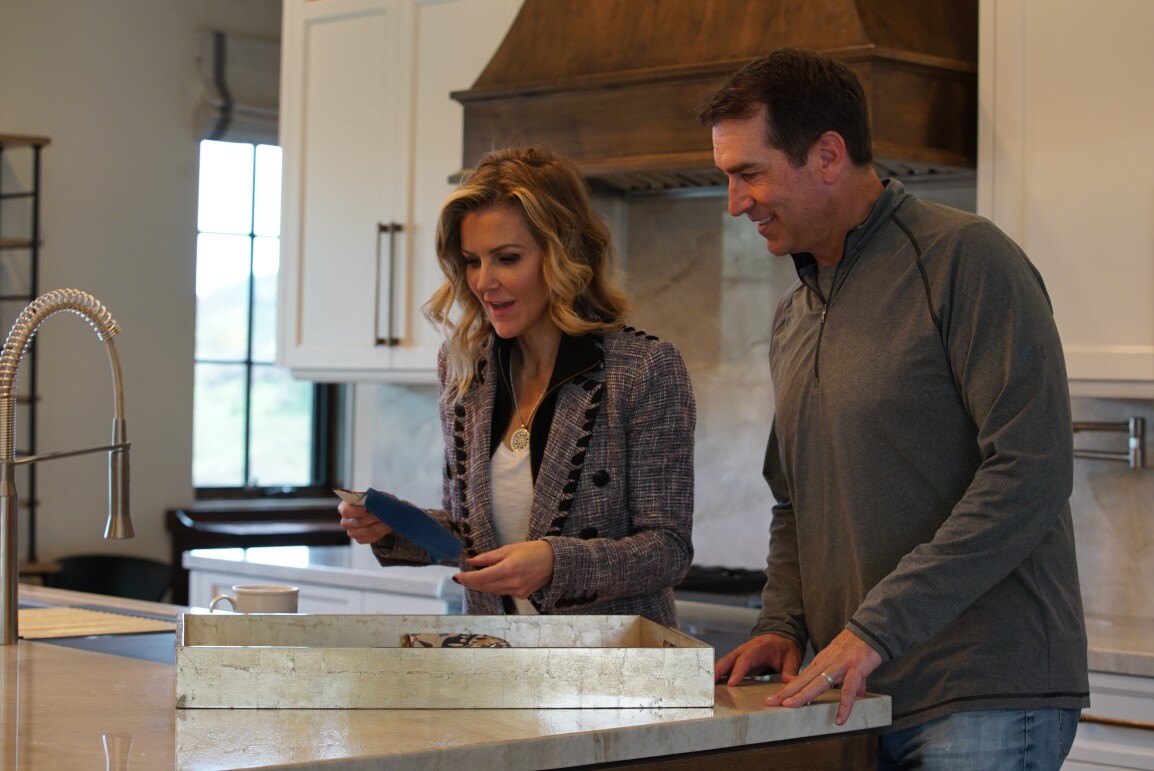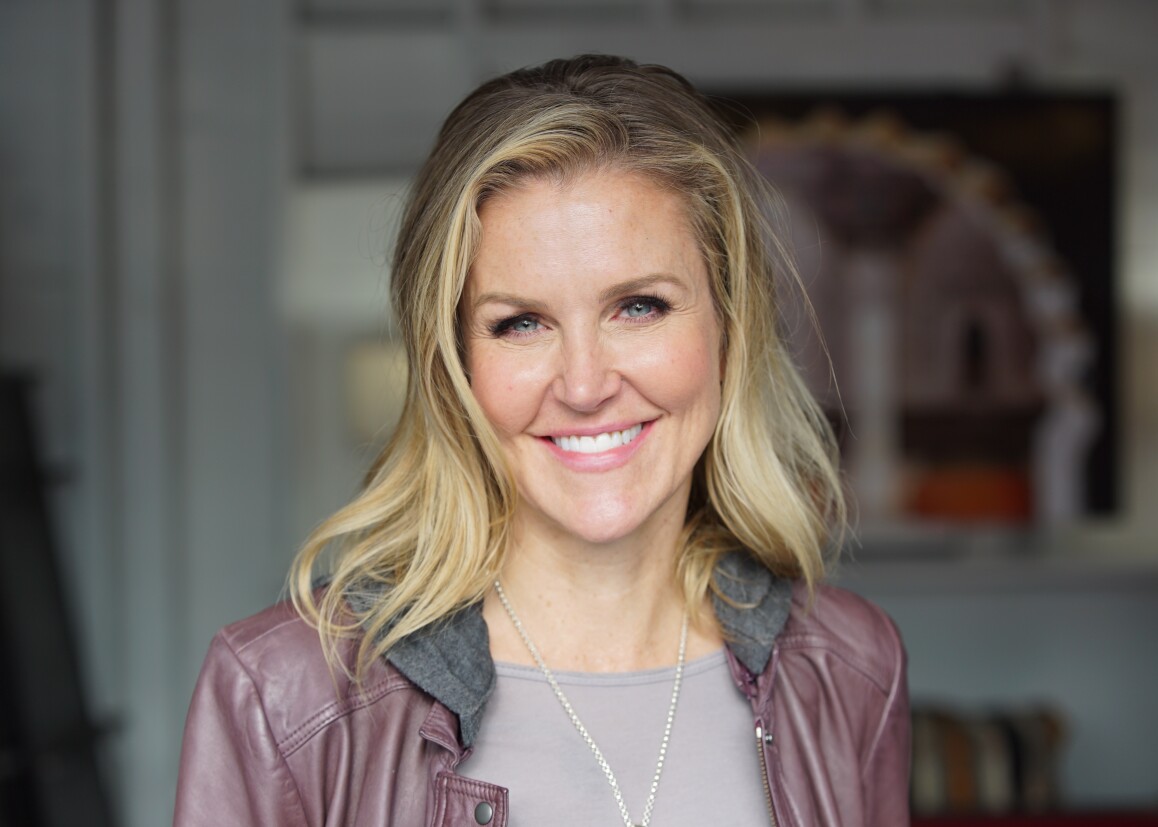I t was Tiffany Riggle’s dream house that jump-started her design career. She and her husband, actor and comedian Rob Riggle, had been living in Los Angeles for several years (having decamped from New York City in 2009) when they fell in love with their Westlake Village residence in 2015, captivated by its striking view of the Santa Monica Mountains. Riggle explains:
“I found this amazing property that needed a ton of work and I was able to get it from start to finish. I could really implement all of the features that I loved and fix all of the pet peeves that I hate.”
Riggle applied an organic modern lens to her expansive, open plan vision; and as a result, the sleek design became a point of pride for her builders – so much so that they began bringing prospective clients to the site. The designer notes:
“Inevitably the clients would say, ‘Who was your designer?’ And I would say, ‘Well, I was.’”
Riggle, the founder of design firm Tickled Crow, formerly worked as a fashion buyer in Manhattan for department stores, including Saks Fifth Avenue and Bloomingdales. The designer’s residential portfolio now spans styles ranging from modern farmhouse to sleek contemporary in homes across the country.

Looking back on your childhood, was there any indication that your career would take this direction?
I grew up in Kansas and did not in any way expect to be a designer. I was raised at a time when I had to attend wood-shop classes – and all of my blueprints were displayed by the principal’s office. I look back and think, why didn’t my sweet little 14-year-old self pursue that? I majored in science and never used it a day in my life. Afterwards, I was a clothing and accessories buyer in New York City, so I’ve always had a flare for the aesthetic.
How seamlessly did your background in fashion translate to interiors?
I’m surprised that the transition has been so simple. Visually, putting together an outfit is very similar to layering a house, whether it’s pillows or window treatments – those layers are vital in achieving balance.
In your design process, do you refer to influences or do you work mostly by gut?
There’s a lot of intuition. I love to bring in natural elements, whether it’s a jute rug or wood floors or a crystal cluster of some kind. I think your home needs to reflect your lifestyle. And in terms of art, if it is meaningful to you – that’s artwork. But there are designers with product lines that I get inspiration from, like Jonathan Adler and Kelly Wearstler. Their creativity is incredible.
How did designing your own home help you to hone your point of view?
In my own home, everything is incredibly clean visually. Even the fireplace is a slab fireplace and that makes my brain happy. It’s a bit of post-trauma from living in New York for so long – my apartment was 350 square feet and I lived there for three years. So hidden storage is important to me. I don’t like to look at cords and chargers and anything that can be cleanly put away. I started really focusing on cabinet design and storage – if you get the right storage, you’re keeping the integrity of your design.

Where did the name of your firm come from?
My favorite color in the whole world is green. And when I was picking out cabinet colors, I came across this wonderful [Dunn Edwards] green for my laundry room and it was called Tickled Crow. Crows are a symbol of rebirth and death, and I felt through this whole career transition, because I stayed at home with our kids for a long time, that the crow was appearing a lot of different places in my life.

Your husband is known for, among other things, scene stealing turns on The Daily Show. How well do comedy and design mix?
I think they’re on polar opposite ends of the spectrum! I would always look at Rob and think how satisfying it must be to create something in your head, write it out, understand the characters, and all of a sudden, it’s on stage or in front of a camera. I understood that a lot more when I would, for instance, draw cabinets and then see them get made. I added a staircase to our house, and I saw the stairs coming in and I realized, that’s what I had in my mind! To see it come to life was pretty fun – even though it was different, it was creatively similar.












